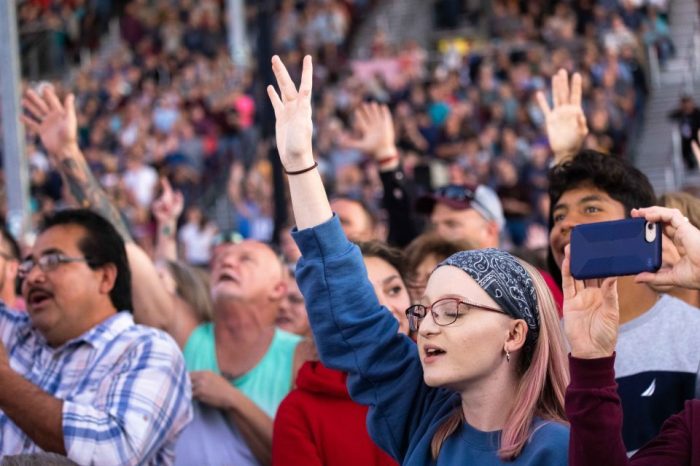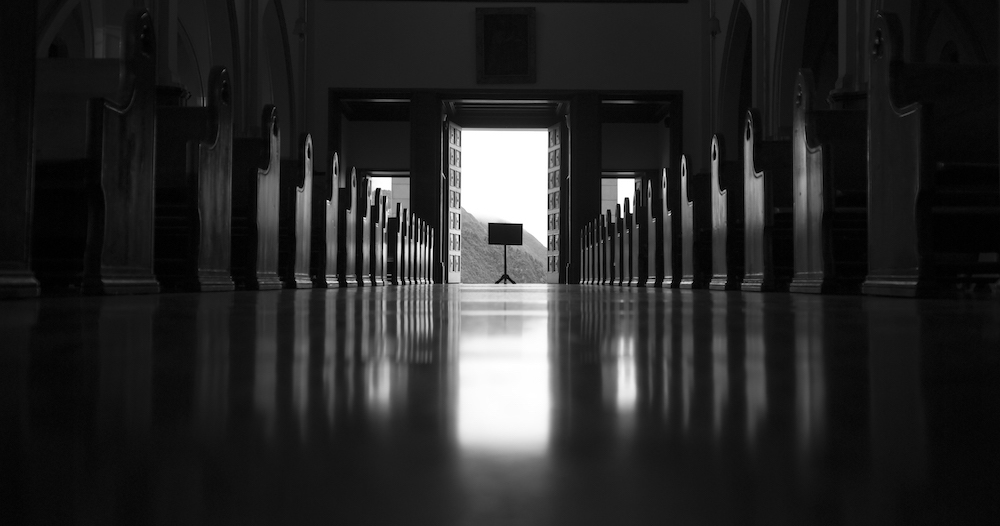
Nearly two-thirds of Protestant churchgoers in the United States report having invited at least one person to church in the past six months, and those with Evangelical beliefs were more likely to do so, according to a new survey from Lifeway Research.
In a report published Tuesday, Lifeway found that 60% of over 1,000 Protestant churchgoers surveyed in September 2023 said they extended at least one invitation in the last six months for someone to attend their church.
Of the respondents, 19% reported making one invitation, 21% reported making two invitations and 20% reported making three or more invitations. Meanwhile, about a third (33%) of respondents said they had not made any invitations in the past six months, while 7% said they were unsure.
Scott McConnell, executive director of Lifeway Research, said in a statement that for most church attendees, “invitations are not just an aspiration but a current practice.”
“Churchgoers were not asked the typical net promoter score question of whether they recommend their church. They were asked if they’ve actually invited someone in the last six months,” said McConnell.
The report drew from an online survey of 1,008 U.S. Protestant churchgoers that was conducted Sept. 19-29 of last year, with a margin of error of plus or minus 3.2% at the 95% confidence level.
When compared to data found in a similar Lifeway study conducted in 2017, the percentage of churchgoers who say they haven’t invited anyone to church showed a slight uptick from 29% to 33%. But churchgoers who say they make three or more invitations dropped from 25% to 20%.
“It’s not surprising the proportion of churchgoers extending invites is not growing, since the proactive nature of inviting people to church is counter-cultural,” McConnell said. “People in America are not being more relational, but an invitation to church is an invitation to join you in activities you enjoy, a message that brings you hope, and relationships with you and others.”
The study also found that churchgoers with Evangelical beliefs are more likely than non-Evangelicals to invite others to church. About a quarter of respondents with Evangelical beliefs (24%) said they extended three or more invitations, while 15% of respondents without Evangelical beliefs said the same.
Respondents without Evangelical beliefs (38%) were likelier to say they didn’t extend invitations than those with Evangelical beliefs (28%).
Lifeway screened Evangelical beliefs as respondents who believe the Bible is the highest authority of their beliefs; it is very important to them personally to encourage non-Christians to trust Jesus Christ as their Savior; Jesus Christ’s death on the cross is the only sacrifice that could remove the penalty of their sin; and only those who trust in Jesus Christ alone as their Savior receive God’s free gift of eternal salvation.
Respondents who said they attend Assemblies of God or Pentecostal churches (71%) were the most likely to say they invited at least one person to church, followed by those who attend nondenominational churches.
Just over half of Lutherans (55%) and Methodists (53%) said they invited at least on person to church, making them the least likely among the denominational demographics.
The data suggests that over a quarter (27%) of respondents who did not bring a guest to church said that they “don’t know anyone to invite,” while 26% said that people “refuse my invitations.”
Other reasons for not bringing guests to church include being uncomfortable inviting people (13%), not believing it is up to them (7%) and being too busy serving at church (4%). About 19% responded that they did not know.
African American churchgoers were the most likely to say they extended either two church invitations (28%) or at least three or more (25%), while white churchgoers (36%) were more likely than blacks (26%) and Latinos (18%) to say that they did not invite anyone in the last six months.
With the United States seeing a rise in religiously unaffiliated Americans in recent decades with many denominations and churches bleeding members, there has been much focus and analysis on how practicing Christians can invite people to church.
Many churches in the U.S. participate in an annual observance held each September on the third Sunday of the month called “National Back to Church Sunday,” launched in 2009.
“A single-day event focused on extending the invitation of love, peace and hope of Jesus to our friends and neighbors. A single day to reclaim the true nature of the Church — exactly as Christ commanded,” The event’s website states.
“Incredibly, since [2009], more than 4-million Christ-followers have participated through over 40,000 churches … and the movement is still growing. Now, more than ever, people need Jesus and a caring community where they can belong, grow and flourish.”







